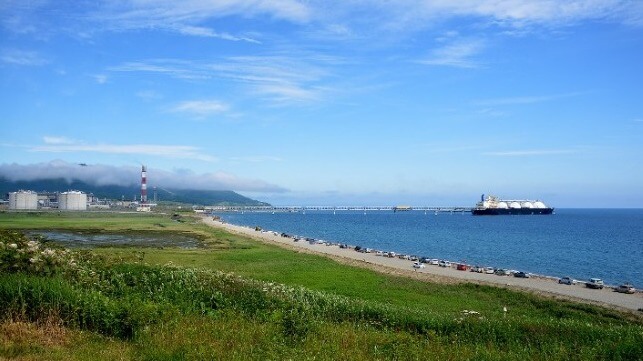Three Japanese Insurers Halt War Risk Policies in All Russian Waters

Three Japanese insurance companies have announced that effective January 1, they will stop insuring ships for war damage in all Russian waters. Nikkei reported Saturday that Tokio Marine & Nichido Fire Insurance, Sompo Japan Insurance and Mitsui Sumitomo Insurance have already started notifying shipowners of the decision.
This is another blow to Russia’s export business, in addition to the Russian oil price cap recently enacted by Australia, the G7 and the EU. Under the price cap, shipowners and charters carrying Russian crude oil have to provide any shipping service provider domiciled in the participating nations with an attestation that the oil cargo has not been purchased for more than a $60 per barrel limit.
The discontinuation of the war insurance is said to have been prompted by reinsurance companies refusing to take on risks related to Russia’s war. Interestingly, the halt also applies to Russia’s waters in the Far East, a region currently not affected by the fighting.
Since the war started 10 months ago, insurers have designated Ukrainian and Russian waters around the Black Sea and Sea of Azov as high-risk areas. Thus, the shipowners have been required to take out additional insurance against the war risk.
Without the coverage, navigation within Russian waters will bear more risk for shipowners. Specifically, Japanese LNG imports from Sakhalin-2 gas and oil project are likely to be affected.
Reportedly, the three Japanese insurers can only begin negotiations with reinsurance companies on restarting the coverage once the Christmas holidays are over next year.
The Sakhalin Island Complex, partly owned by Russia’s Gazprom and Japanese companies, is vital to Japan’s energy security. It accounts for over nine percent of the country’s LNG imports.

that matters most
Get the latest maritime news delivered to your inbox daily.
The Japanese government has also been consulting major oil refiners about buying Russian ultra-light crude from the Sakhalin -2 project to ensure the plant continues to operate smoothly. The oil, a byproduct of the plant commonly known as the Sakhalin blend, needs to be shipped out regularly for LNG production to continue.
While Japan supports the Russian oil price cap, it has exempted gas and oil imports from the Sakhalin- 2 project.
